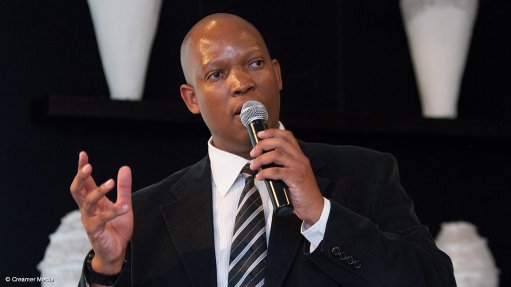
ECSA acting CEO Edgar Sabela
Photo by: Duane Daws
The Engineering Council of South Africa (ECSA) has again appealed to all registered and nonregistered engineers, certificated engineers, engineering technicians and engineering technologists to participate in an online survey designed to improve the overall visibility of the country’s technical skills gaps.
The survey, which was launched in early October, is voluntary and is being carried out and funded by ECSA, with the backing of the Department of Higher Education and Training and the Economic Development Department.
The National Engineering Skills Survey will run until December 15 and can be accessed at www.engsurvey.co.za. It reportedly takes about eight minutes to complete.
More than 6 000 responses were recorded in the first month, but ECSA acting CEO Edgar Sabela has indicated that it would like to attract more than 10 000 respondents to “get a good sense of the skills planning we require”.
From the responses to date, ECSA says some trends have already become evident, including the fact that the profession’s profile has transformed significantly from its traditional white male dominance. However, there has only been limited progress in the area of ensuring a greater gender balance. Also apparent is the fact that most retired practitioners are willing to continue working as consultants.
Fewer than 7% of engineering practitioners working in South Africa are foreigners, while some 10% of projects carried out by local engineering practitioners are international projects – largely projects in the rest of Africa.
About 40% of engineering practitioners have postgraduate qualifications and 66% of practitioners belong to recognised voluntary associations. Only 4% of respondents also hold Government Certificates of Competence, however.
Some 74% of respondents registered with ECSA value the professional designation and the recognition it provides, while the main reason given for not registering with ECSA is because practitioners work in environments that do not require registration.
A report drawing together the survey results will be published in April.